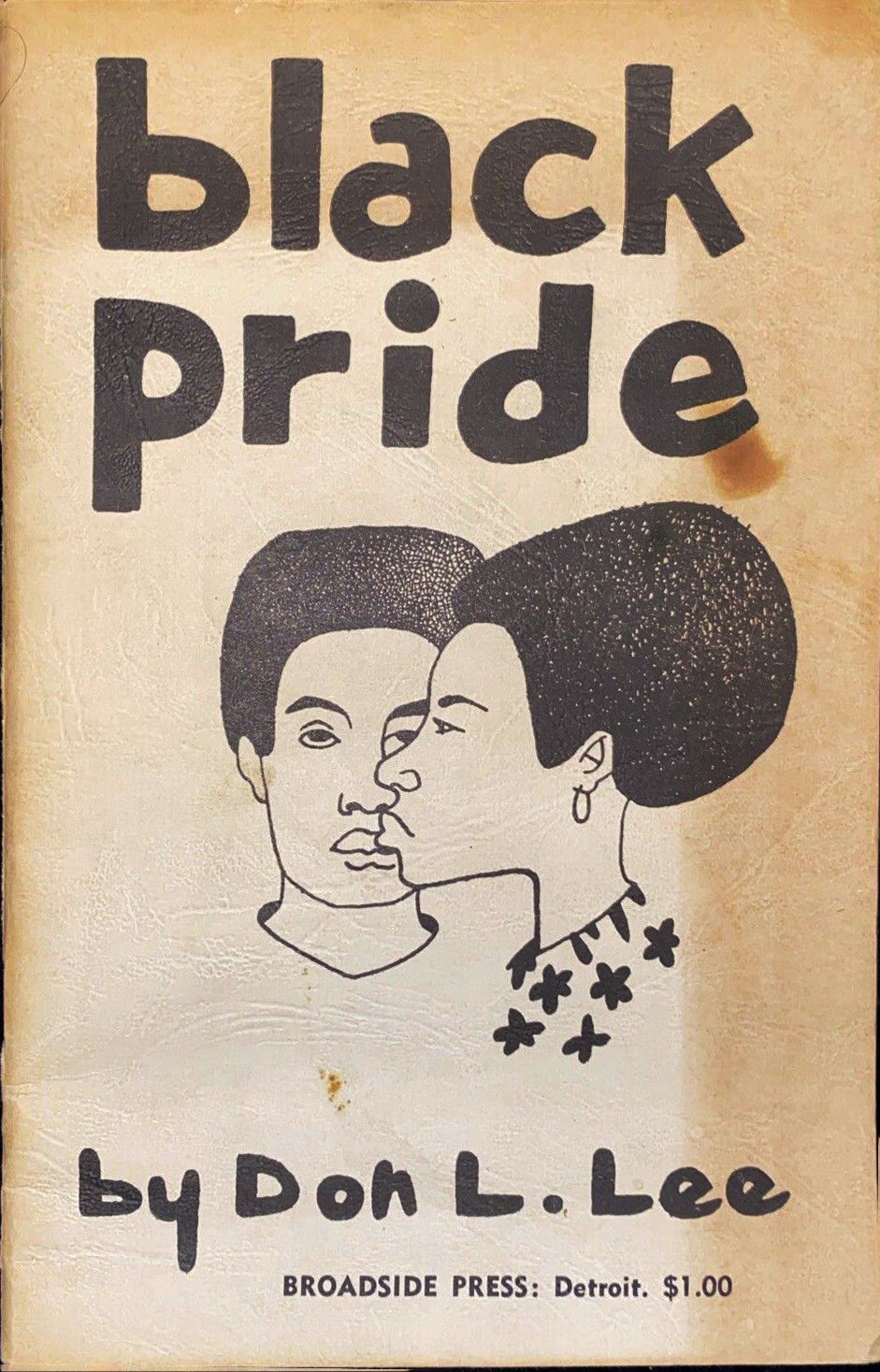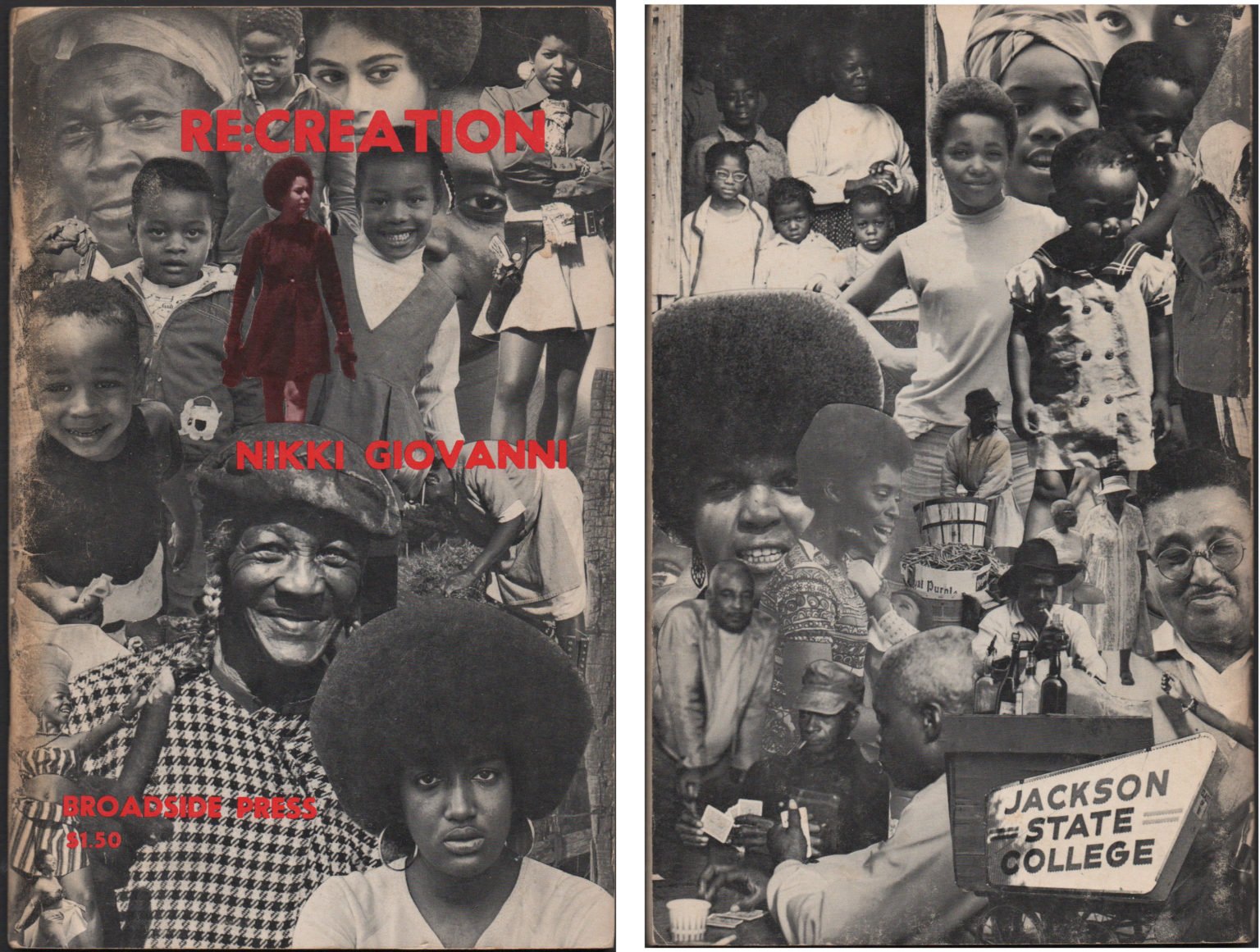In its most vibrant period, Broadside Press was one of the loudest voices in Black print culture. It presented a wide variety of authors to the book buying public, but its position as the “the major Black press in America” was cemented by the popularity of a few significant poets.
Gwendolyn Brooks was the first African American to receive the Pulitzer Prize, for 1950’s Annie Allen. Her work and success can be seen as bridge between the poets of the Harlem Renaissance of the 1920s and 30s and the emerging poets of the Black Arts Movement of the 1960s and 70s. Her work with Broadside began when she gave Randall permission to print her 1959 poem, “We Real Cool” as Broadside No. 6. She had great confidence in and enthusiasm for the work that Randall was doing with Broadside. To give support to Randall and to encourage Black publishing, Brooks left her publishing company, Harper & Row, to be published by Broadside. To further show her support for the press, she gave all of her profits from her book, Riot, to Broadside. In addition to her books of poetry, Broadside also published her autobiography, View from Part One.
Haki R. Madhubuti (Don L. Lee) began his career by selling self-published books of his poetry on street corners. Randall received a copy of his work and was interested in publishing his poetry. The publishing arrangement spoke to the way that business at Broadside Press was done. According to Randall, “Initially there were no contracts. We shook hands and spit over our shoulders…” Madhubuti became one of the most popular Broadside poets. His book, Don’t Cry, Scream, sold over 50,000 copies. A native of Chicago, he would go on to found Third World Press there, inspired by Broadside’s work
Nikki Giovanni, it could be argued, was the most popular of the new Black poets emerging in the 1960s. She was declared “the princess of Black poetry” by Encore magazine. Initially, her work was self-published, but she wrote to Randall to request that Broadside publish her work. Her success and notoriety in the poetry world eventually led to her leaving Broadside Press for a contract with New York publisher, Morrow.

















